A different Bag winner
Creators
Who is behind this?
Who is joining forces?
Local government of Bag
http://www.bagfalu.hu/
Hungary
‘Parental Collaboration for our Village’ - informal group of parents in Bag, called “SzÖSz”
https://www.facebook.com/Sz%C3%BCl%C5%91i-%C3%96sszefog%C3%A1s-Sz%C3%BCl%C5%91falunk%C3%A9rt-2433959463310921/
Hungary
Idea
Idea pitch
Tension, discrimination, intolerance. These words describe the relationship between a Roma settlement and the non-Roma neighborhood in an average Hungarian village.
But Bag is different: Bag wants to become a better place for everyone. Our projects brings together locals with different backgrounds, who will work in groups towards common goals (such as crime and littering), and create a long-term local Roma strategy, leading the village towards an inclusive, democratic, active community.
Where will your project idea take place?
Bag, Hungary
What is the specific societal challenge faced by this region?
Bag is large village located 40 km from Budapest with 4000 habitants, out of which 400 are Roma, living at a segregated neighborhood.
The social tension between the minority and the majority in the village has become more and more acute over the years. The peaceful coexistence that took place earlier has been increasingly overturned since 2000, due to growing social differences: while the majority population of Bag is a highly traditional, religious community, the designer drugs have appeared in the already poor settlement, leading to increasing crime, tension, and brought more conflicts and even more growing poverty.
Our project reflects on this societal challenge by bringing together locals with very different backgrounds and working together towards common goals.
Who are you doing it for?
Our target group is the village itself as such, regardless of the background and previous belief or perspective. We believe that the locals all want to achieve the same: a safer and peaceful place, where children can grow and study to have the best possible future.
Therefore our main target groups:
- Roma adults living at the settlement (about 200 people), who would like to make actions for a more peaceful environment
- The non-Roma inhabitants of Bag (about 2500-3000 people), regardless of their perspective about Roma people, as we would like to include the largest group possible: parents, teachers, local workers, entrepreneurs etc.
- The larger Hungarian society, as we would like to disseminate our findings and the Roma inclusion strategy for other villages and towns
How do you plan to get there?
The necessary preparations for launching the program have taken place in recent months at local forums. Roma and non-Roma locals identified three topics to address: crime, public waste, and stray dogs. During the program, we will set up working groups (which include all stakeholders: Roma, non-Roma and Bagazs staff) for these three projects. They create an action plan and implement it, solving these problems.
The working groups meet every two months in a local conference to discuss and report on progress. These joint occasions are also important to bring the working groups responsible for each area into synergy and to address the problem in a complex way. It would also provide a forum for locals who are not yet involved in the group but might be interested, or want to raise questions.
What are the expected results?
The three selected projects are a tool for learning more about each other, developing intercultural communication channels and for capacity building.
The main goal of the program is not only to implement these projects within 1 year, but to jointly develop a local Roma strategy. In the implementation of this strategy (from 2022) Bagázs would participate as a consultant only.
As a result of the project, the local government, the care system (ie the village itself) would be able to perform several Roma integration tasks - not only do we want to solve the identified three problems in one year, but also start a longer-term integration process, closer cooperation and active community life in the village, where everybody's voices are heard.
How does your idea strengthen active citizenship at a local and community level?
Roma people living in poverty are often capitalized by powerful actors (let it be national or local politicians, or Roma leaders) in Hungary. Their votes are often ‘bought’ either by false promises or by material donations; they do not have the capacity and means to be active citizens and practice their democratic rights.
From an informal aspect, in Bag, although there are community programs, celebrations, children’s events, the Roma population rarely participates in these.
Our project aims to change that: we would like to make the people from the settlement more active in the life of the village, and the non-Roma population more welcoming and inclusive.
Why is this idea important to you?
We have been working with the Roma community of Bag for 10 years: adults and children know us well at the settlement. But we feel like the time has come to take our work in the field of Roma integration to the next level, and make the village - the institutions, local government, the community itself - to be able to do 'our job' by themselves, or with very little help from the NGO. Overall, this would be the ultimate goal of Bagazs: to help the Roma communitiy and the majority as well to able to live together peacefully, without the presence of a 'third party'.
€ 48000,-
Total budget
€ 48000,-
Funding requested from Civic Europe
Major expenses
Project management and coordination (personnel cost, Bagazs): 19 000 EUR
Coordinator from the local government (personnel cost): 7000 EUR
Local coordinator from the settlement (personnel costs, Bagazs): 7000 EUR
Other costs of the projects (e.g. waste containers, castration of dogs etc.): 12 000 EUR
Communications: 2000 EUR
Travel costs: 1000 EUR
Project Journey
End of the project but start of a new chapter
During the implementation of our project, we spent the majority of our time and efforts by listening to all the stakeholders, how they see the local problems, what they think the causes are and solutions might be to reduce internal tensions, discrimination and segregation.
The expected results of “A different Bag” project were diversified. Our three selected projects were meant to be a tool for learning more about each other, developing intercultural communication channels and for capacity building - while the main goal of the program was not only to implement these projects within one year, but to develop a local Roma strategy. A strategy together with the local government, the care system (ie the village itself) and the local Roma and non-Roma inhabitants. Even though this common strategy has not been finalised yet, we consider the past year as a success and an important step towards a true collaboration between stakeholders and towards achieving real Roma inclusion on a local level.
Over the course of the project, we managed the tensions, preconceptions and segregation at two different levels: on one hand, we organised and supported activities which had an immediate impact on the people living in the segregated area (trees, flowers, garbage collection, stray dog collection and adoption, dog vaccination, chipping and neutering, electricity works, etc.) with the aim to motivate people and also to reduce the physical and social segregation between the settlement and the rest of the village, which eventually reduce tensions.
On the other hand, we worked with all our stakeholders for a long-term impact, sensitising them towards each other, helping them to recognize the issues, the root cause of them and the potential blockers, through capacity building and empowering people so they are able to articulate their needs and stand up for them.
The main change in the community is the more open and regular conversations, higher engagement of local people and institutions and more trustful communication between parties.
We were able to build a common ground between stakeholders where everyone understands that multi-level action is essential, and that it is not enough to address just one segment of the problem, such as education, housing, crime or the labour market, nor is it enough to tackle the problem at the level of the individual, the family, the community or the wider environment. In the future, the activist group (Fáklya) will work on topics selected by the group itself or the ones the local community is highly interested in eg. the ones highlighted on local forums. Going forward this group should be expanded – involving more people living in the settlement or in the rest of the village. We believe that over time, this activist group will be able to speak up and articulate their needs and rights in collaboration with the local government and other allies from outside, and Bagazs will be able to gradually step back and let the local group and the local government work together.
Future advocates of the settlement
When we started our project, one of our major goals was to serve as an incubator for a group of local people and empower them to become future advocates for people living in the settlement. We were convinced that anything we would do during this one year could be sustainable only if we ensured that once the project was over there were local people who would be ready to maintain the achieved results.
With the support of the Toolbox learning journey Community Engagement path, we identified the key people in the settlement who are engaged to speak up and act for the community. Given our strong presence in the settlement, the almost daily conversations with families about the stray dog and public waste situation, and also our local coordinator’s strong connections to people living there - once covid situation allowed that - we relatively quickly found the people who were ready to start the common work.
We held several onsite workshops in our container building in the settlement to agree the foundation of the common work:
- we identified which are the topics they are committed to work on – not surprisingly, these were in line with our project’s main topics
- we also agreed as a team that group would focus on one topic at the same time and work on it every six months or until the message we want to transmit is considered to be strongly built in the settlement’s daily life.

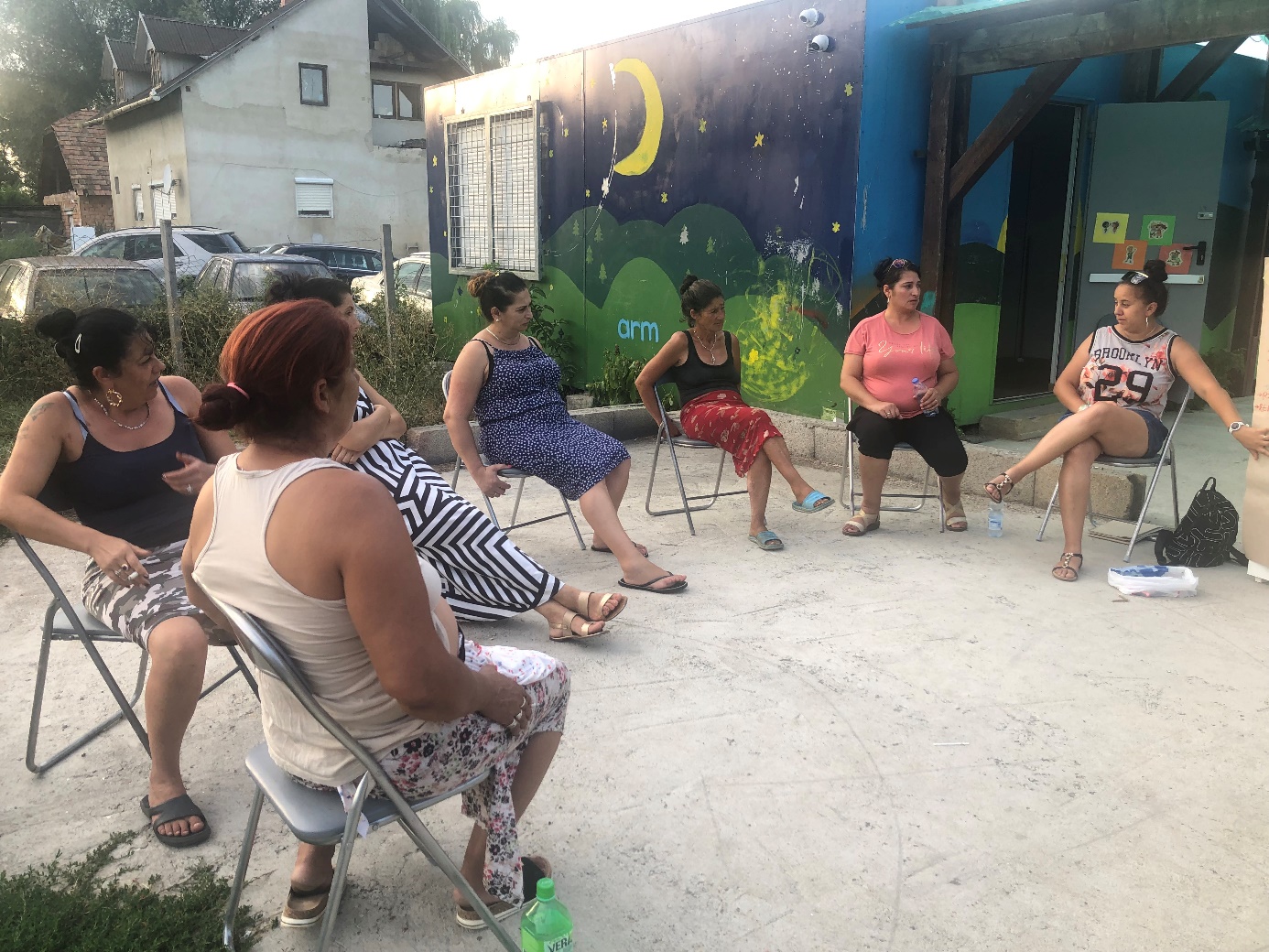
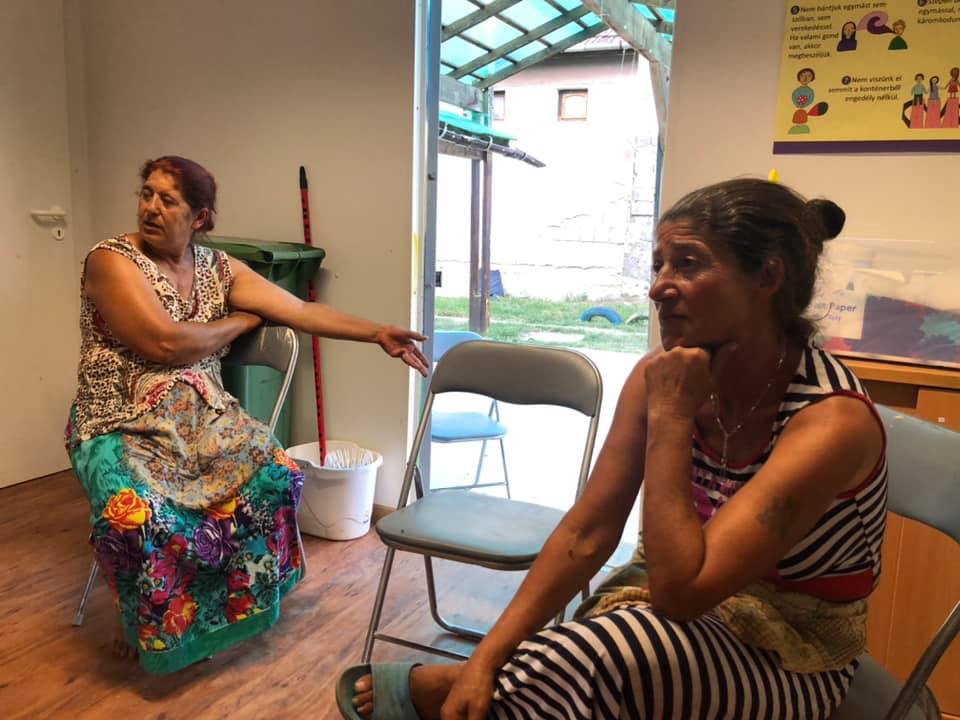
Once the core team was set up, we spent two very intense days together offsite, where
- we supported the members to identify and articulate their main motivation which will ensure they can commit themselves on the long run

We agreed that within this group we set up 3 smaller groups:
- one is responsible for visit all families periodically and raise awareness about the topic, motivate them to participate in related actions,
- the second is responsible to organize the action itself and ensure all materials, resources are available,
- and the third one is responsible for external communications so the message that this group of local people is ready to make steps towards a change, reaches a wider audience.
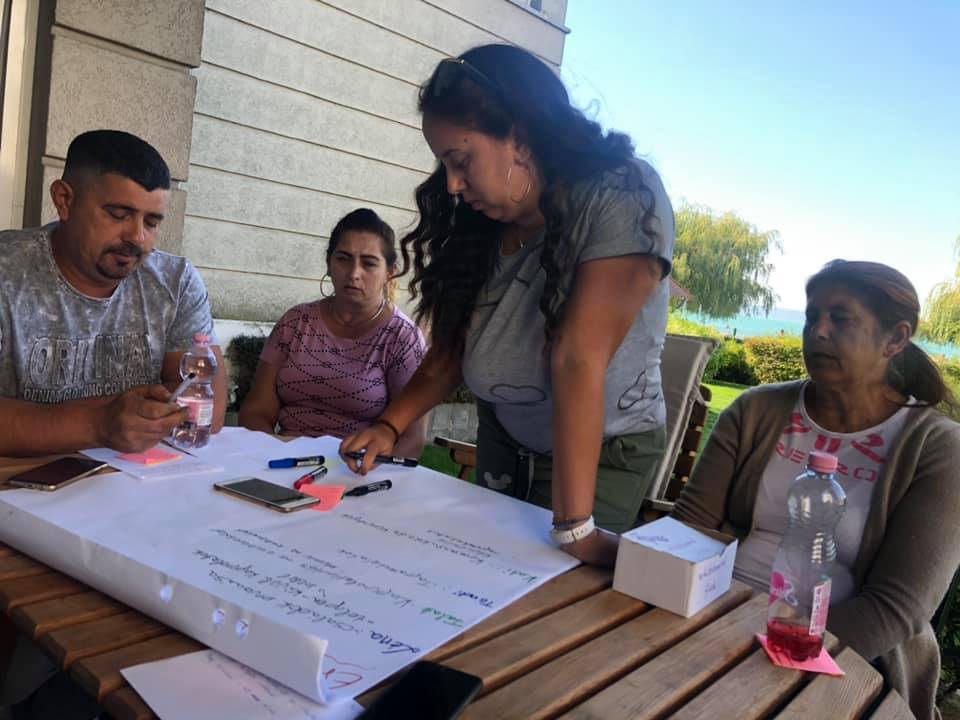
Once we had the framework and ways of working, we chose our first topic – public waste – and we started the preparations of our very first event: the garbage collection day.

We were very proud that this time - due to the previous family visits and very thorough preparation -, almost all families participated in our first action day. We are confident that supporting this local group while stepping back each time a bit, they will be ready to take over the work we have been doing during our Different Bag project!
From challenge to... challenge
Bag is a village with very high crime rates compared to regional figures. Our initial idea was to fight the topic where most people wanted to see a change: designer drug problem. Despite the very strong commitment of all stakeholders, this was a topic which proved to be a hard nut to crack and after several failed attempts we recognize this is completely out of our scope and competence, therefore we had to rescope this project part.
As a result of some conversations with our stakeholders, we found out that illegal utility consumption is also one of the mayor topics which increase social and physical segregation between the settlement and the rest of the village and which deepens stereotypes. After a deep dive into the topic, we understood that people using illegally public services in many cases pay more for the service in form of penalties, and the case is not that people would not like to use these services legally but the connection fee is so high and the whole procedure is so complex that without support they cannot make through the process.
Therefore we invited the families to join the stray dog and public waste projects and for those who participated actively during 6 months, we offered the financial and administrative support for the (re)connection to electricity, running water or drainage network.
Starting the procedures, we faced a new challenge: in some cases the process got stuck because the houses’ ownerships were unsettled. It’s very common, that people in the settlement buy and sell houses without reporting these transactions to the relevant authorities, so we set up a working group with local government, volunteers and habitants to tidy up ownership issues.
Second big bottleneck is the slow nature the bureaucratic side, the planning of the connection, the collection of approvals from utility companies took way more time we expected.
The third blockage was that in many cases the families were cut off from public utility due to the huge debt they accumulated, and they could not reconnect until it’s cleared off. This was a trigger for us to set up another working group for debt management.
We are started to work with 11 families on connecting the house to electricity or drainage system, and depending on the complexity of the ownership issue, debt status and volume, and the connection type we are in different stages in the procedure. Electricity connection preparation works has been finalized for 5 families already, and with some luck we will get a couple of more this year.
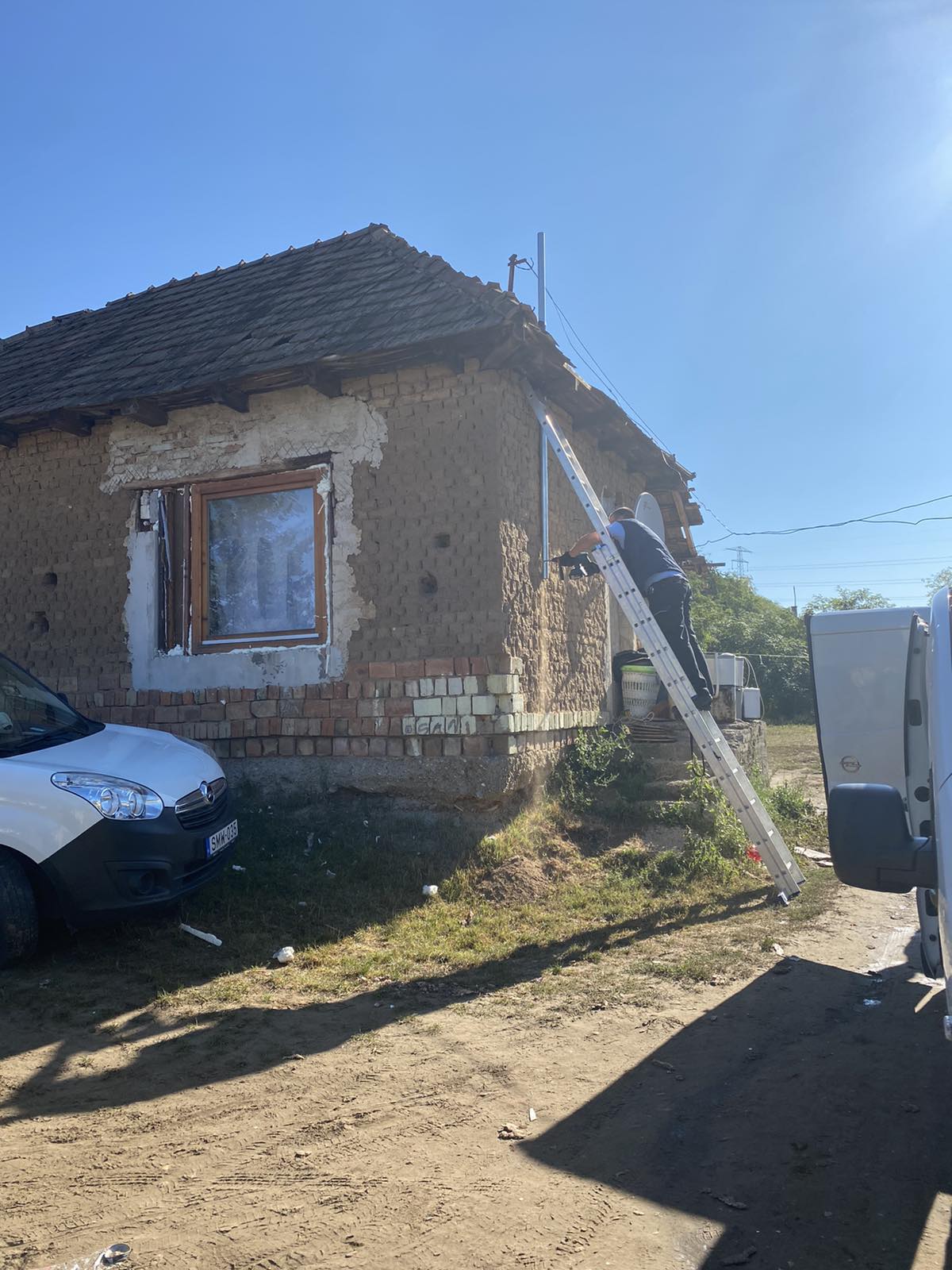
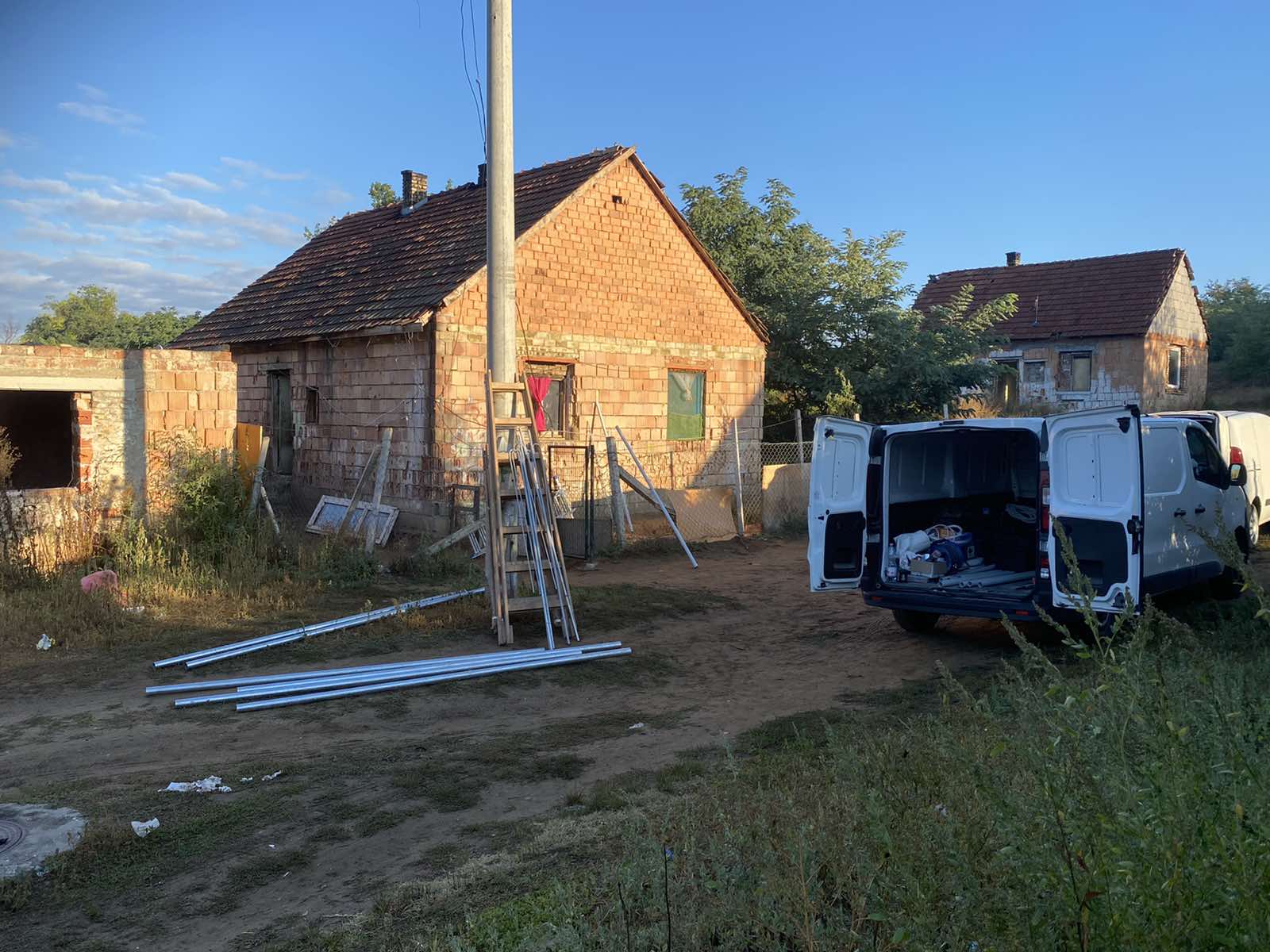
Dogs on the streets
Another main focus of the project was to see how can we address the stray dog situation in the settlement.
Dogs on the street might be dangerous or at least threatening for anyone: not only people living there but anybody who needs to go by: postman, doctor, social workers, teachers, our colleagues and volunteers. The dogs also visit the village and this aggravates more the tensions between the settlement and other locals. So we started our dog project…
Main objectives were to raise awareness between people living in the settlement on responsible dog ownership, find a home for the dogs who had no owners or which were no longer wanted, get the dogs with owners vaccinated, chipped and preferably neutered, get the dangerous dogs collected by animal control services.
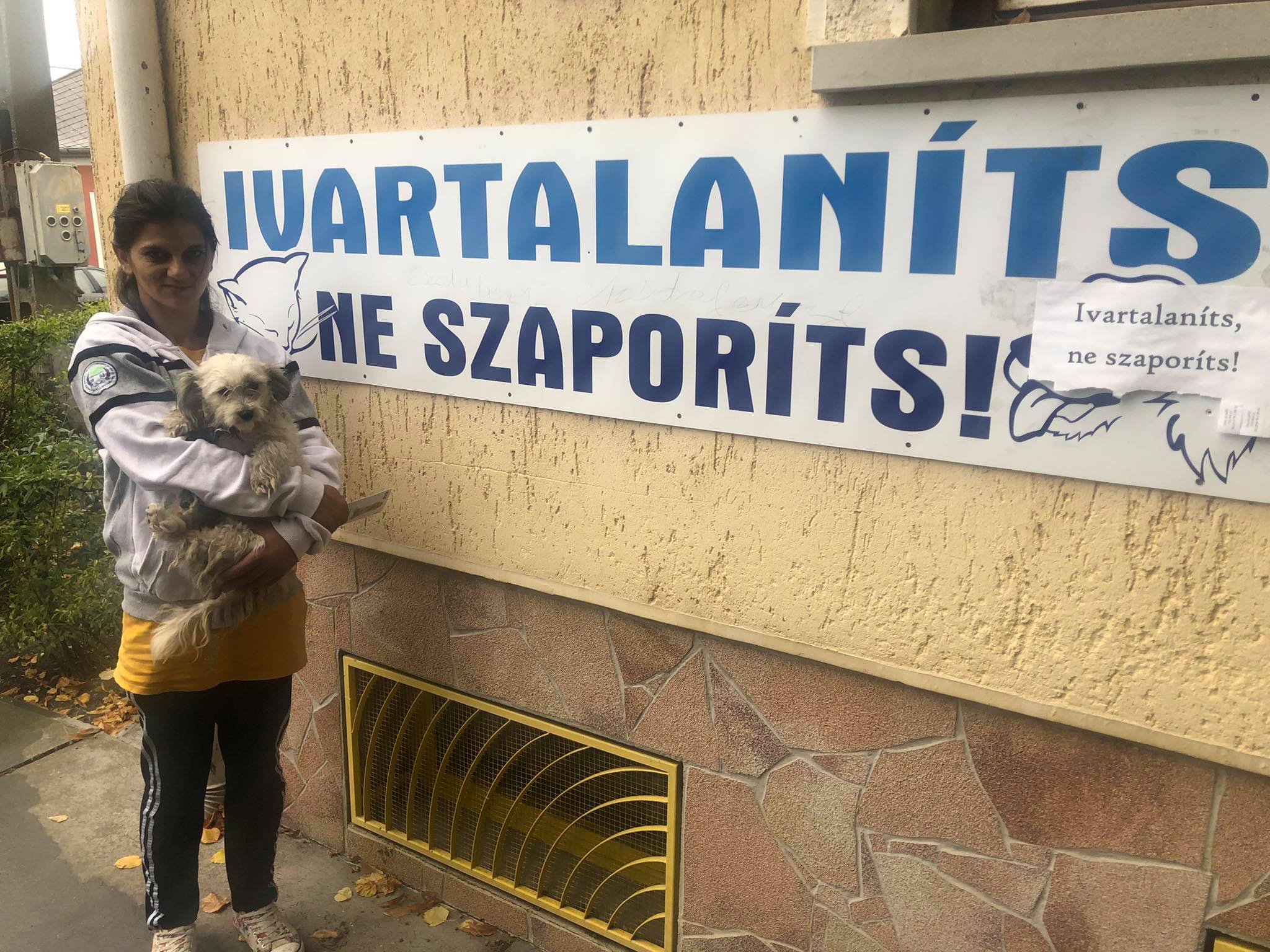
Over the first months we spent time on assessing the number and condition of the dog population and went house by house to explain our goals to the habitants of the settlement. We faced a lot of challenges there, as neutering was absolutely not welcome among the dog owners. Parallel we also noticed that get a dog chipped, vaccinated and neutered or get the dogs collected will not solve our issues as dog population changes quickly. Therefore we decided to slow down with concrete, material actions and put more effort into changing somehow how people are looking at animal care.
We set up a working group contacting and collaborating with professional dog organizations – University of Animal Vet, dog protection and animal protection organizations, dog adoption centers, dog shelters, animal vets and chamber, with two goals: collect good practices we can use in the project and also to educate ourselves on dog topics. Based on these collaborations and professional support, we decided to elaborate our dog focused animal protection programme to educate children and adult on animal protection, animal rights, responsible animal ownership, which - as a vertical - is being built in all our age and topic-based programmes (children development adult and family mentoring, collaboration with institutes) to ensure sustainability.
Public waste, littering, illegal waste dumping
Reduce public waste on streets and fight littering was one of our project's main topics. In the settlement the majority of the streets and some of the gardens are untidy, and on many abandoned parcels you find big quantity of public waste, which attracts more littering, unwanted animals, demotivates people to keep their garden tidy, makes a bad impression of the neighbourhood which further aggravates exclusion and discrimination.
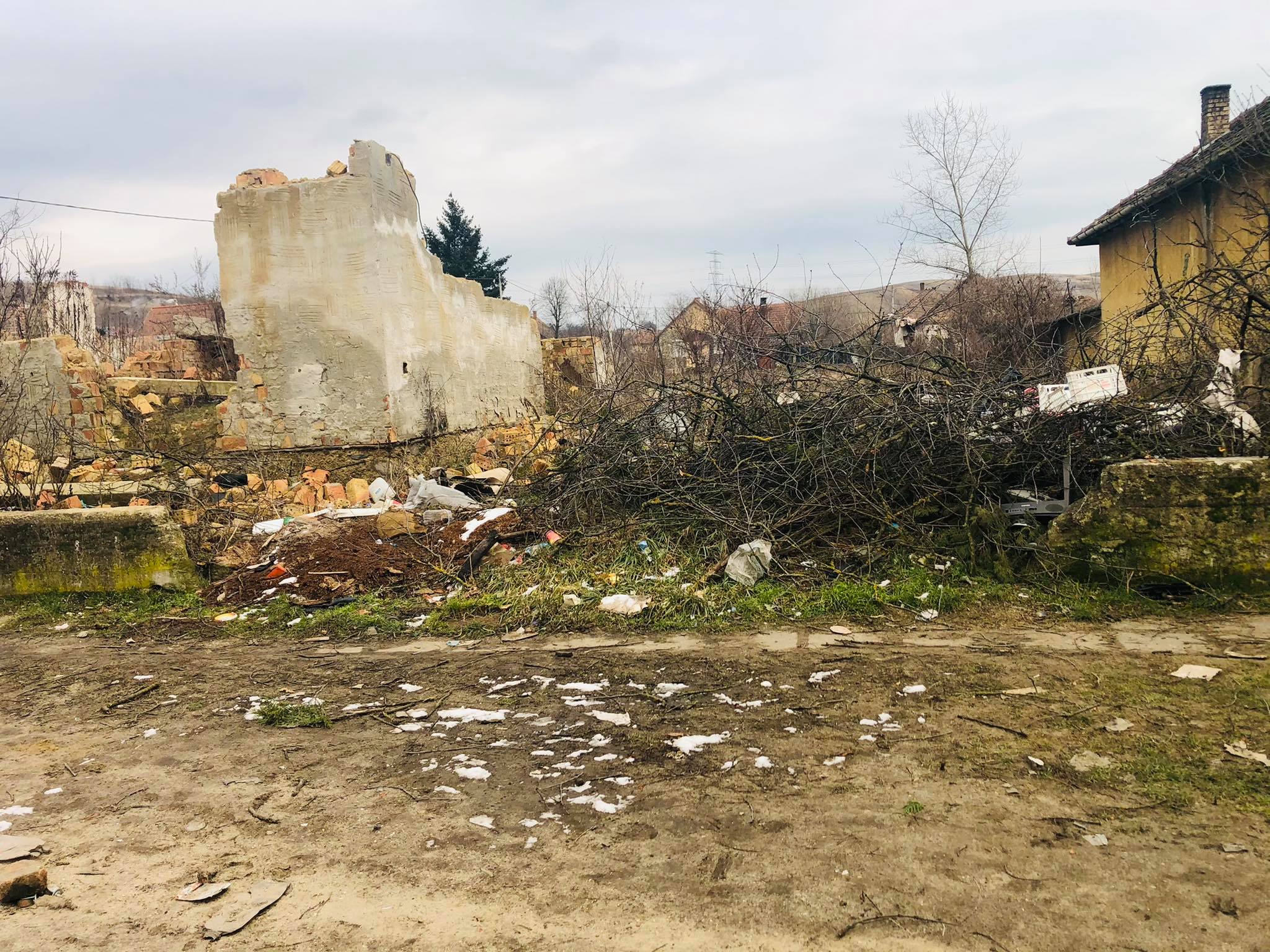
First step we took was to understand the problem deeper: why do we have so much litter in the streets and in the gardens? What we found is that one cause was incorrect waste management habits within families - some do not use garbage collection bin but burn up or bury the household garbage. However, this was the smaller part of the problem. we also understood this is only the smaller cause of the problem. Not all public waste on the streets and gardens come from people living there: in many cases people from outside transport their garbage here and deposit it in abandoned parts of the settlement.
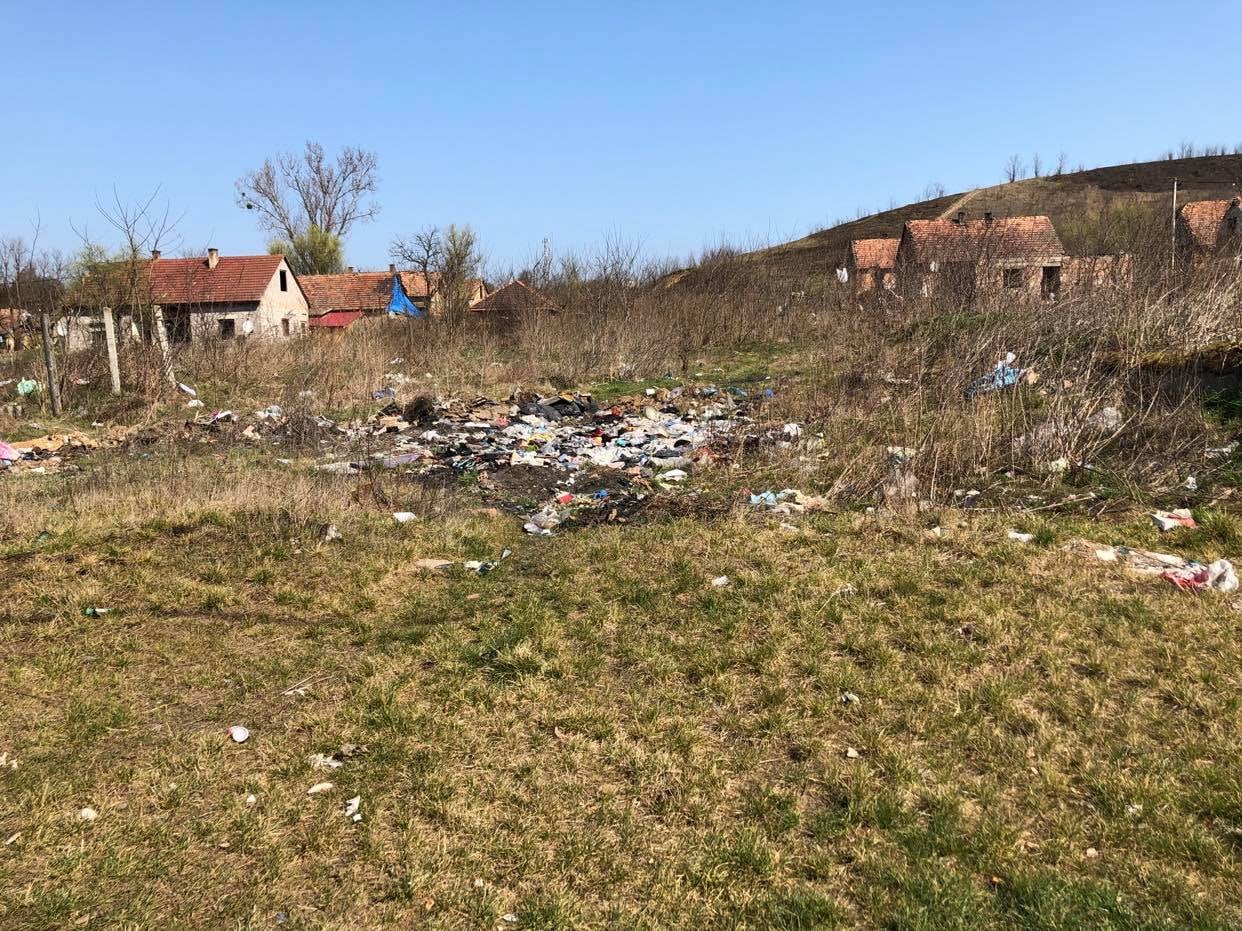
We started to work with families one by one to identify where the waste is coming from and based on this supporting them in how can they reduce the quantity, how to manage properly the household garbage, and what to do if someone places illegally garbage next to their house. Parallel, we started to work with the local government to see how illegal waste dumping can be addressed.
We encouraged the families to participate with small present periodically to help them make their environment nice: flowers, plants.

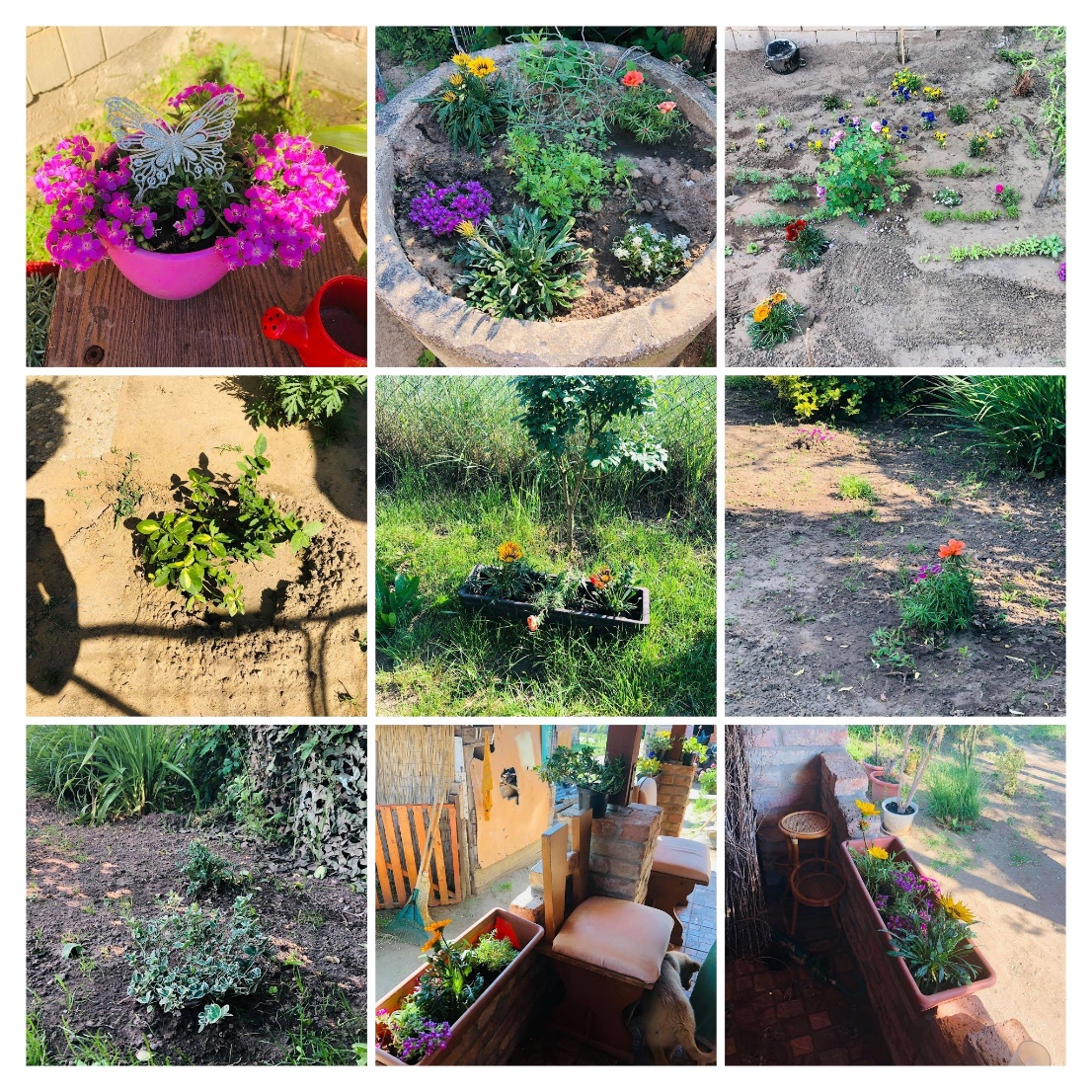
At the end of autumn, a local group involved in the project organized a garbage collection day where people from the settlement joined forces to mow down the grass, collect garbage on the streets and with the help of volunteers and local government support we also managed to clean 3 parcels with illegal waste and on the very same day trees were planted in the gardens’ of the participant families.
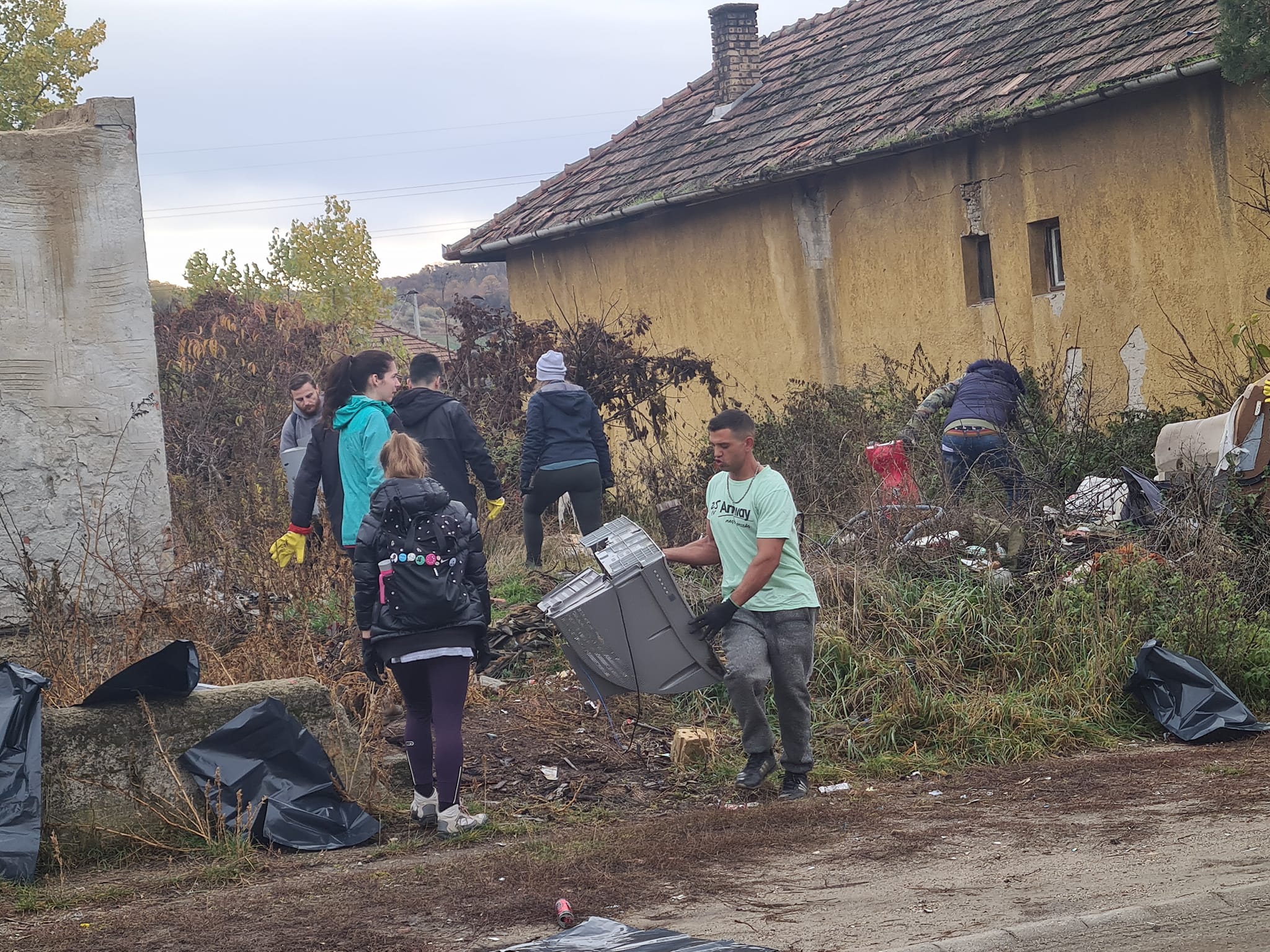
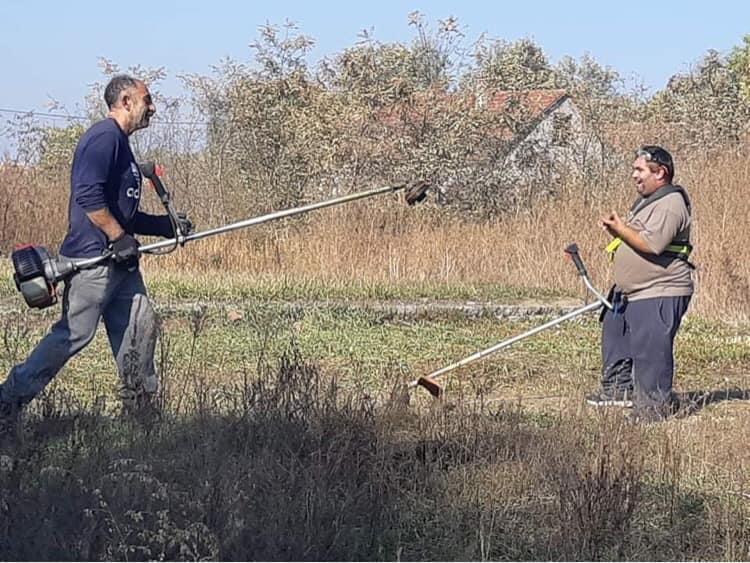
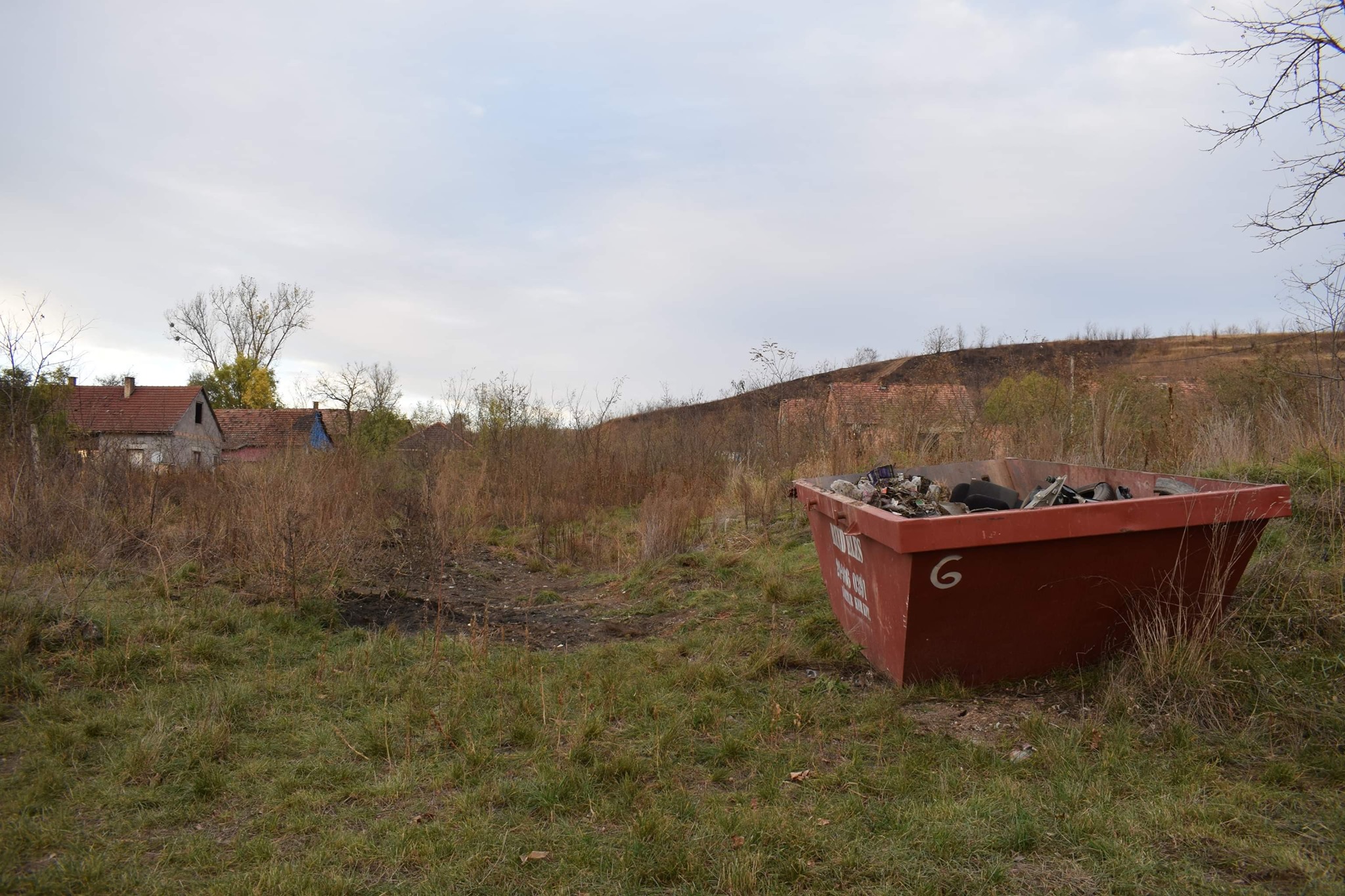
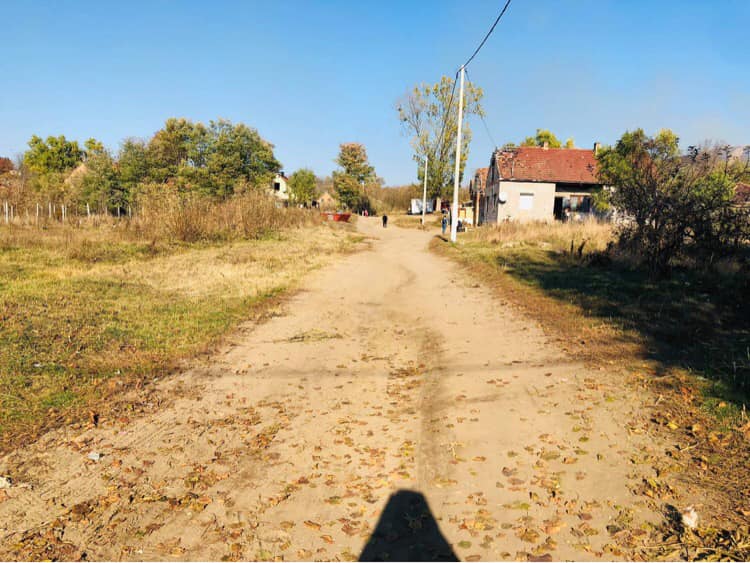
Let's hit the road
Different Bag is a project where we want to prove that people from different background and interests are able to work together when they share a common goal.
Due to the level of tensions and lack of communication between our stakeholders as well as reflecting covid situation we chose to start working with these groups separatelly in smaller groups hoping that with time these can be merged.
We stared parallel deep dives to understand the root causes of our focus point topics, identifying different interests, main issues and blockers. Based on these conversations we understood that all these are rooted in a complexity of underlying issues, which we wanted to use in the collaboration plan.
We also set up our goals:
- have a better street view in the settlement (less street dogs and less littering)
- stronger community and better internal communication
- have a local alliance which could serve as future advocate for the people living in the settlement
- stronger external relations/collaboration, communication with local institutes and professionals, and also with the rest of the village
Write comment